As a content writing company, the past year has been a definitive journey for us. While we continued to do what we do – write high-quality human written content for our clients, generative AI tools made their entry.
It was since the previous year when ChatGPT and Bard received immense attention from netizens. The idea of an Artificial Intelligence software writing content drove marketers crazy and everybody jumped the queue to use it.
But that hype subsides now with more knowledge and awareness about the merits and limitations of generative AI in content creation. So, now that everything is back to cool-and-calm, we decided to finally go deep into the AI vs human writer debate.
We took all this time to closely study and understand the workings of generative AI programs like ChatGPT and Google Bard. As content specialists ourselves, we relied on our access to unlimited top-notch human-written content to put it side by side with the AI-generated ones. To finally arrive at the conclusion on which one should you choose in the AI vs human writer debate.
Keep scrolling and learn more!
What is AI Content Writing?
On the question of AI or humans, let us cover the basics first. AI content writing is the process of generating blogs, and articles – virtually anything and everything using generative AI tools like OpenAI’s ChatGPT and Google’s Bard.
They are known as natural language processing (NLP) models that understand and reproduce language like humans do. So, when you give it a prompt like “create a blog that plans a 5 day tour itinerary to Thailand” – it can create an entire blog for you.
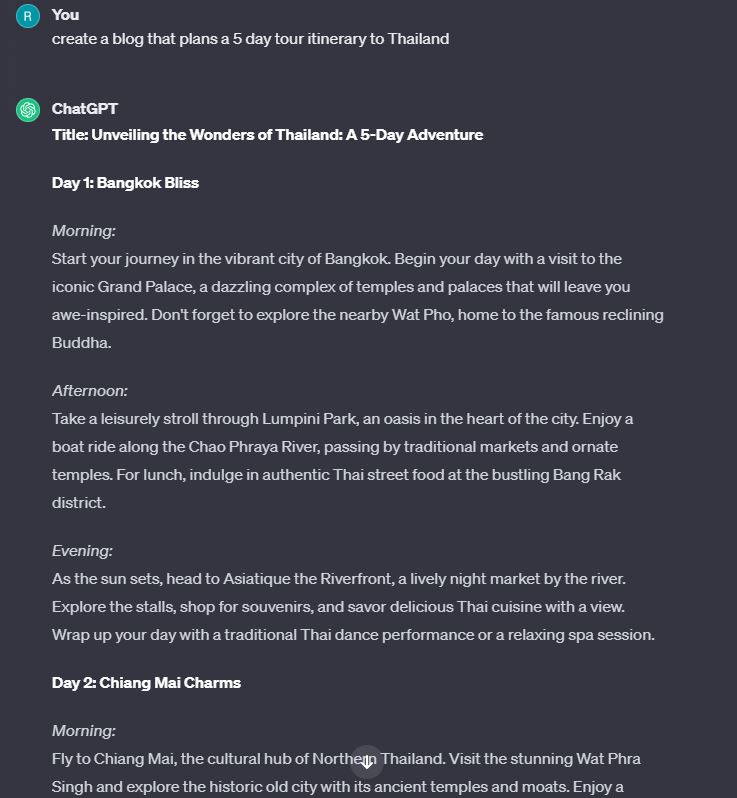
We can see, in spite of using a very basic and generic prompt – ChatGPT 3.5 can produce a considerable amount of text which reads just like any human written blog.
Here are a few observations we can make on ChatGPT’s content generation capacity:
- ChatGPT is versatile in its scope to create content on any topic.
- It can generate grammatically accurate texts that just read like human-written blogs do.
- The model is able to follow simple instructions for customising, we asked the GPT model to create a 5 day tour itinerary and it did exactly the same.
How is AI Content Different from Human Content?
The fundamental difference between AI and human written content is subjectivity. In the case of human written content, we can be subjective with tone and choice of words – it can better address a target group to resonate with their emotions and values.
For instance, at Das Writing Services, our unique value proposition is tailored original content that are designed to speak directly to the audience. This is the reason why we can be a bit nosy about your business model and target audience when you reach out to us. By asking all those questions, we strive to create bespoke content that resonates with your audience and generates better ROI for content marketing.
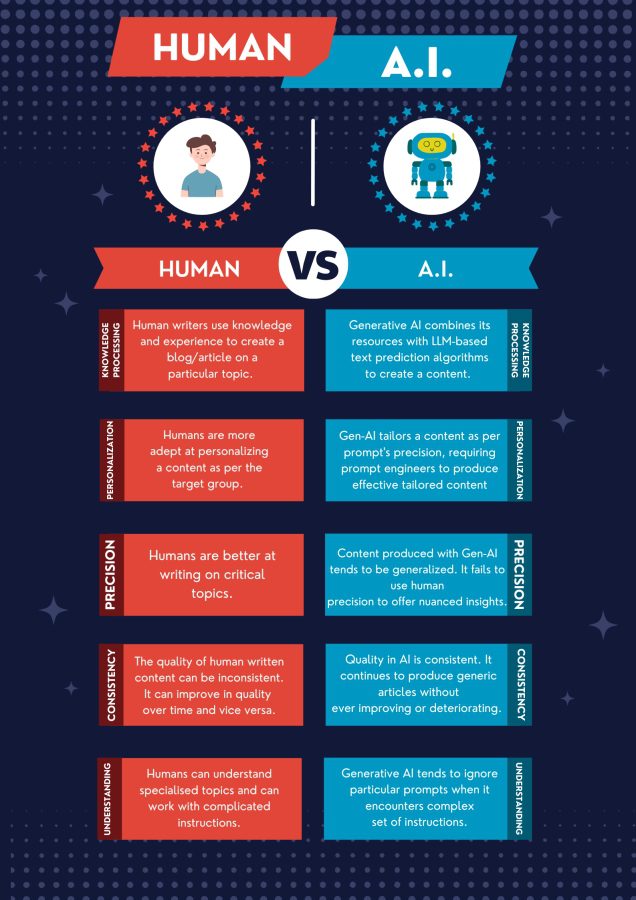
Generative AI, on the other hand, writes for everyone by default. Unless specified, it produces generic information that is meant for all. Since generative AI models are usually trained on LLM-based neural transformer models, they follow a text prediction strategy which sometimes compromises logic and rationality. Read our blog on AI detector tools to learn further about how LLM works.
Despite their ability to be creative and humorous, chatbots like ChatGPT and Bard fail to replicate the nuances of the human brain in many situations. This results in dubious information and a lack of precision in some cases.
Irrespective of the drawbacks of LLM-based chatbots, such tools have gained immense popularity in the last year. Especially its ability to create a large amount of content that is both grammatically accurate and coherent, that too within a minute is simply astonishing. That is why it is quite safe to assume that when time is of the essence, using AI technology to generate content might be the best way to go.
Pros & Cons of AI-Generated Content
It is pretty evident that AI-generated content has its own share of merits and demerits. While such chatbots are no match for human intelligence and sensibility, they can outshine humans in their ability to create content faster than anything else.
| Pros of AI-Generated Content | Cons of AI-Generated Content |
| Quickest in creating new content | The quality of information is doubtful |
| Saves both time and money | Needs professional prompt engineers to generate the right content |
| Can generate content for diverse genres and industry | Unable to optimize for a specific target group |
| Anybody can generate content with AI | SEO content optimization with AI is poor |
At the same time, reliability becomes a huge concern for content created with artificial intelligence. The cases of AI hallucinations are infamous where the chatbots create erroneous data and information trying to pass it as authentic.
So, if authenticity is a concern for you, unless you are trying to generate a solely creative content, generative AI content must be taken with a pinch of salt.
Pros & Cons of Human Written Content
When pitted against AI, content written by professional SEO content writers can produce verifiable and precise information that is trustworthy. However, the downside of precision is the unavailability of good writers and the inability of a single writer to write content in multiple industries and genres.
Also, coming across high-quality content writers who correctly understand your requirements can be tiresome.
| Pros of Human Written Content | Cons of Human Written Content |
| Better audience engagement | Time-consuming process |
| In-depth knowledge of the topic | Comparatively expensive |
| Better with SEO optimization | Needs multiple interventions to maintain uniform quality |
| Ensures accurate information distribution | Mostly unable to produce large volumes of content quickly |
Further, Google continues to emphasise on the importance of quality as a ranking factor. It is more evident than ever, getting AI to write your content can be actually harmful if you want to rank on the SERP.
AI Content Creation vs Human Content Creation
Having taken into account the pros and cons of both human and AI-generated content; let us finally pit them against each other to see which one deserves the best of our attention.
| Human Written Content | AI Generated Content |
| Original and authentic information | Provided information is only as good as the data available on the internet (or the data it was trained on) |
| Better understanding of context and target audience | Better at creating content faster |
| Helpful to drive and retain organic traffic | Useful to cater to urgent content requirements |
| Can produce SEO-optimized content for better search engine performance | Search engine performance is not optimal without human intervention |
| Can write brand-specific tailored content | AI is inefficient for organic content marketing |
While AI-generated content proves useful when trying to fill out generic web pages like Privacy Policy and Terms and Conditions, outsourcing your content marketing plans to AI alone is hardly a sensible choice.
A good rule of thumb is if you are planning to generate brand awareness or earn revenue from content, be aware of the limitations of AI. A shortcut and cost-saving measure now may invite penalties and strikes that hamper your website’s performance in the long run.
Final Verdict
So, as we are almost at the end game now, it is time to take a stand on the AI vs human written content debate. When it comes to content marketing, using AI-generated content is hardly a sensible choice if you want to increase your brand reputation and create an audience through it.
Still, if you want to leverage AI in content marketing, having a good editor and a fact and quality-checking specialist is a must to prevent any unforeseen debacles.
Takeaway
Of course, everything we have said in the blog is relevant to the present generative AI landscape only. The world of AI is rapidly evolving and both ChatGPT and Bard, the two top contenders are continuously upgrading for more accuracy and reliability.
Sneak peeks of Google’s upcoming next generational AI infrastructure, Gemini have already created much hype among AI enthusiasts. Gemini is being touted as the largest language model created to date that is increasingly efficient at understanding and reasoning like humans do.
So, no matter what, the role of AI in content marketing is quite important and the importance is only going to increase as improved versions of the tools begin to enter the market. For humans, the question is to harness its full potential without falling for its shortcomings.
FAQs
1. Is AI more effective than humans?
In terms of efficiency, yes: AI can be super-efficient for data-driven repetitive tasks. However, matching human intelligence and experience is difficult for AI.
2. Can ChatGPT replace creative writing?
ChatGPT has already become famous for creative writing like stories and poems. While it is capable of producing creative works alongside humans, the chances of AI completely replacing creative writers are less because of its inability to recreate human originality.
3. Is AI more efficient than humans?
Definitely, when the question comes down to efficiency and productivity, the capacity of generative AI is unprecedented. AI chatbots like ChatGPT and Bard can consistently follow prompts tirelessly. The same kind of efficiency is impossible for humans.

Ritish Dutta is a seasoned Content Developer with over 7 years of experience in the industry. Currently, at Das Writing Services, he writes SEO-optimized content that caters to our diverse clientele. Ritish utilizes his critical insights and experience to talk about digital marketing, SEO content writing, content strategy, and AI.
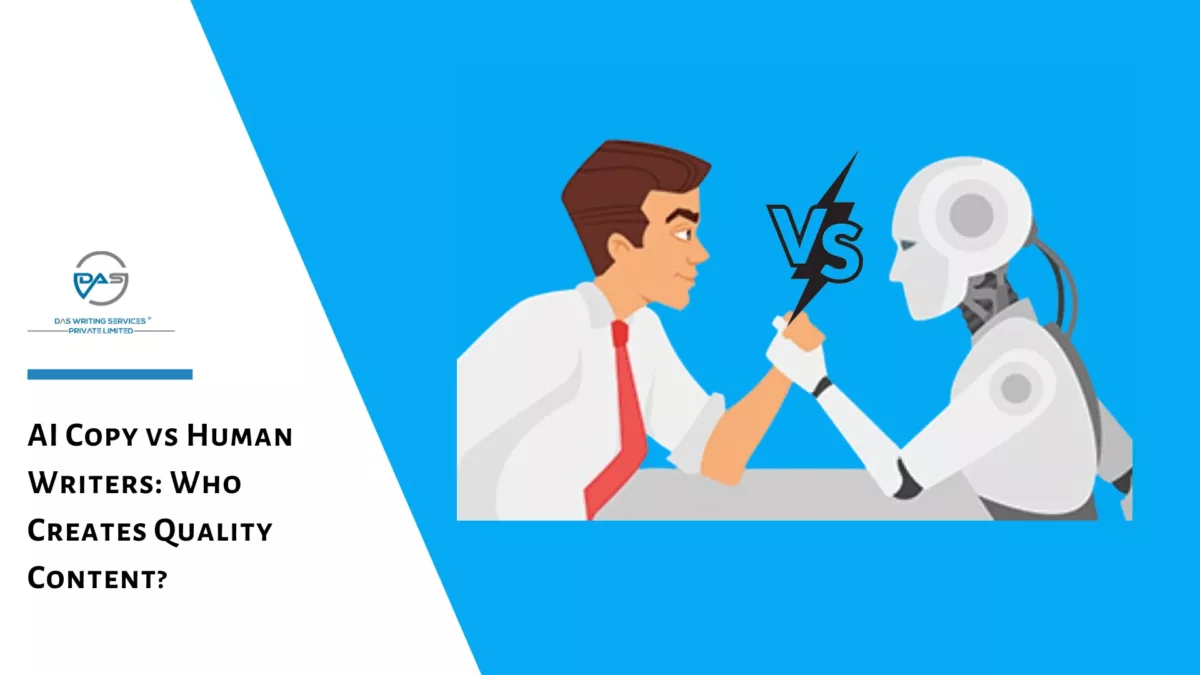


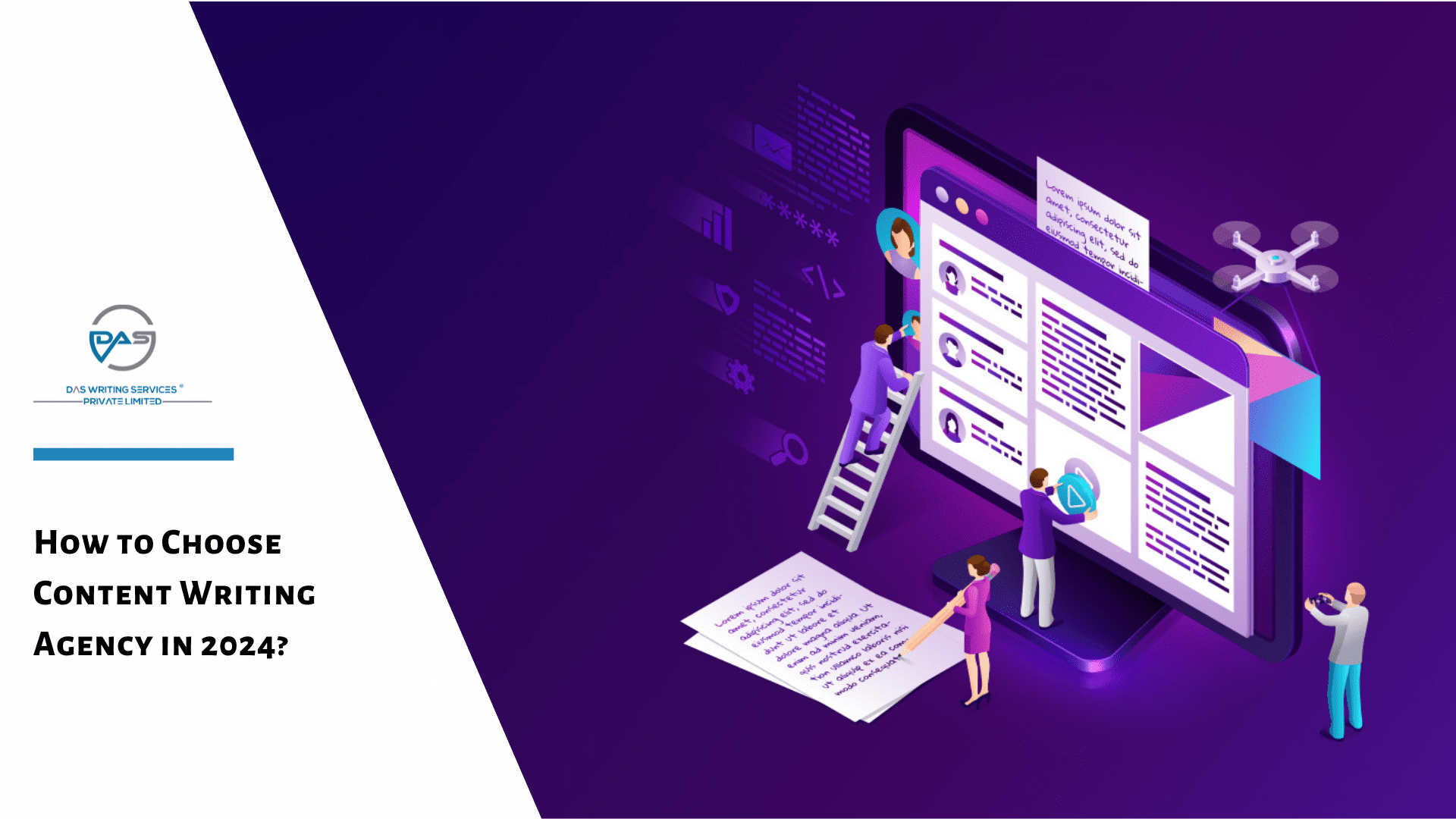
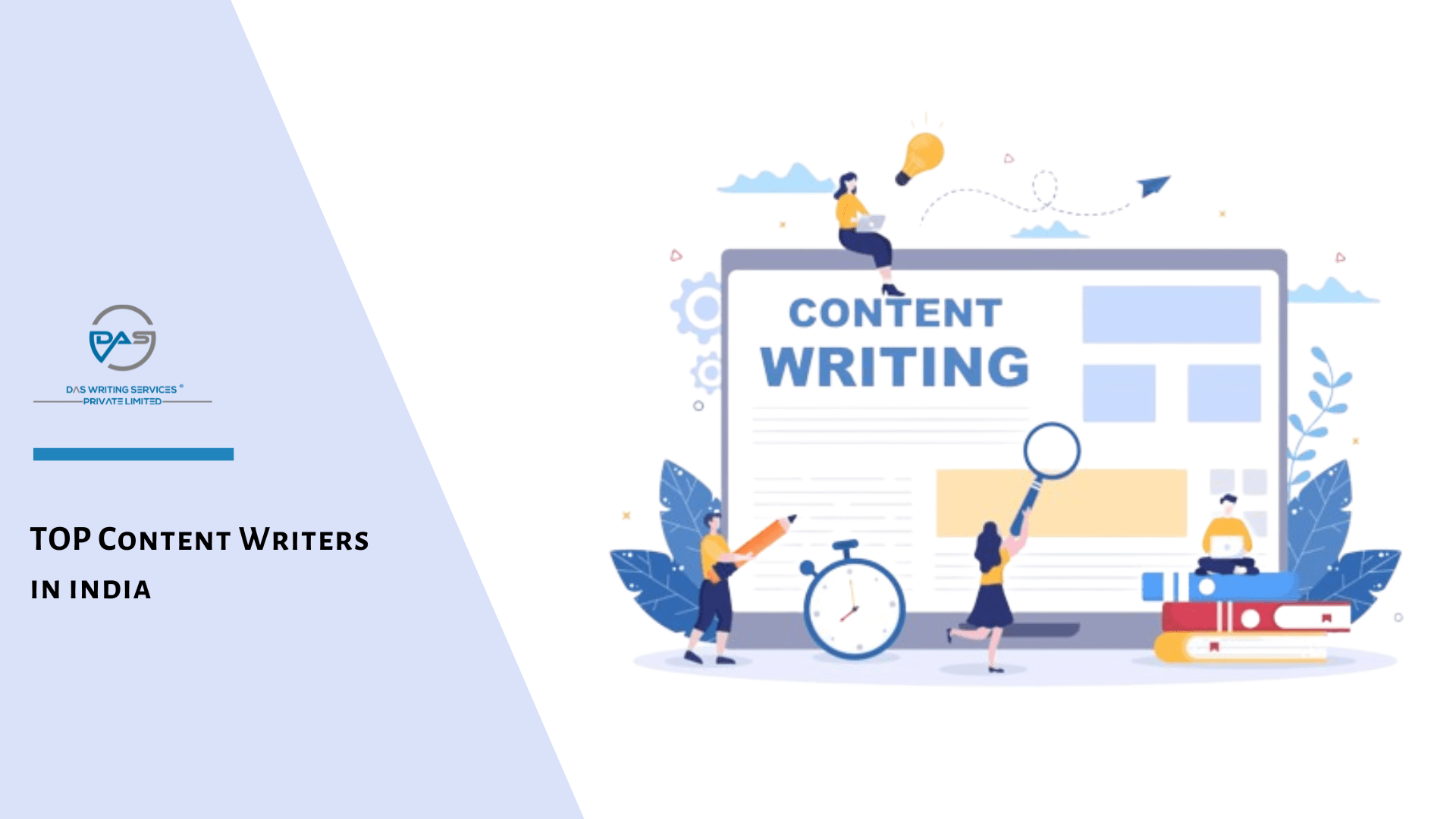

Leave a comment
All comments
M~a gii thiu binance
Your article helped me a lot, is there any more related content? Thanks!
kosmik
Your article helped me a lot, Thanks for sharing us.
kosmik
This post is so interactive and informative. keep update more information.
devops-training-in-hyderabad